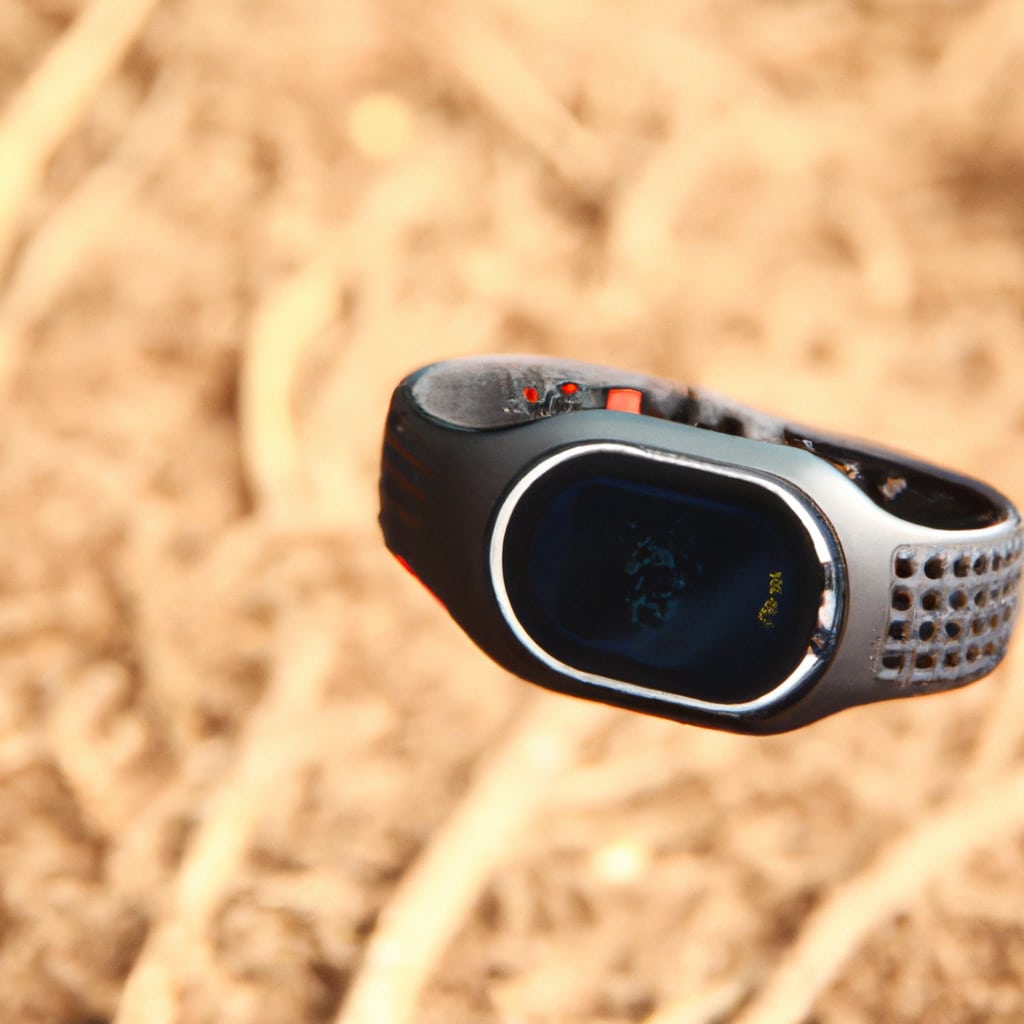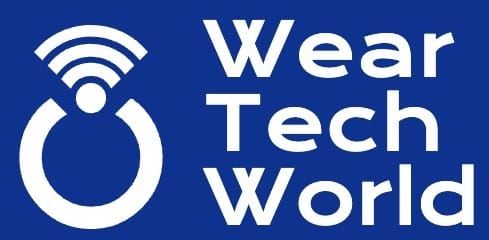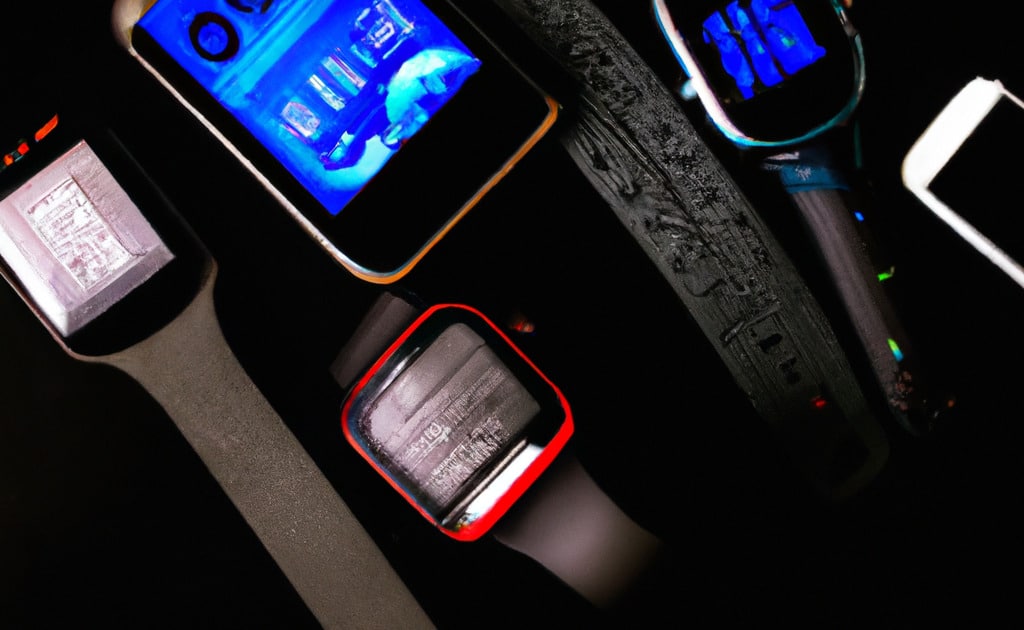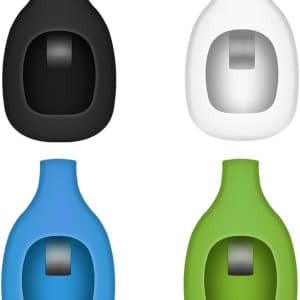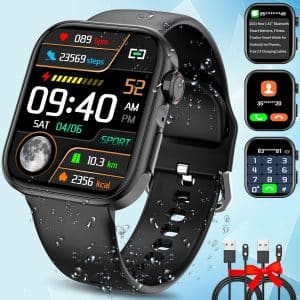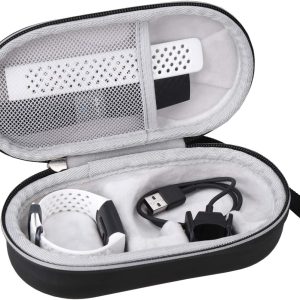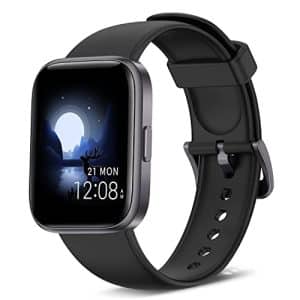Are you tired of tossing and turning, unable to find the sweet embrace of sleep?
Do you yearn for a deep slumber that leaves you energized and ready to conquer the day?
Look no further than the power of fitness trackers.
These remarkable devices do more than just count your steps and monitor your heart rate.
They hold the key to unlocking the mysteries of sleep cycles and helping you achieve the restful nights you’ve been dreaming of.
In this article, we will embark on a journey through the fascinating world of sleep science and explore how fitness trackers can revolutionize the way we understand and optimize our sleep patterns.
Prepare to be amazed as we delve into the intricate dance of sleep stages and discover how these innovative gadgets can transform your sleep quality.
The Intricacies of Sleep Cycles
Sleep is a fascinating and essential part of our lives. It is a time when our bodies and minds rejuvenate, repair, and prepare for the challenges of the day ahead. But have you ever wondered what happens during sleep? How does our brain navigate through different stages of sleep, and what role do fitness trackers play in unraveling these mysteries?
To understand the impact of fitness trackers on our sleep, we must first explore the intricacies of sleep cycles. Sleep is not a uniform state but rather a dynamic process that involves several distinct stages. These stages can be broadly categorized into two main types: REM (rapid eye movement) sleep and non-REM sleep.
Non-REM sleep consists of three stages: N1, N2, and N3. N1 is the lightest stage, occurring when we transition from wakefulness to sleep. During this stage, our brain waves slow down, and we may experience fleeting thoughts or images. N2 is a deeper stage of sleep where our body temperature drops, and our heart rate and breathing become more regular. Finally, N3 is the deepest stage of non-REM sleep, also known as slow-wave sleep. This is the stage where our body repairs and regenerates, and where we experience the most restorative sleep.
On the other hand, REM sleep is characterized by rapid eye movements and vivid dreaming. This stage is crucial for cognitive function, memory consolidation, and emotional regulation. During REM sleep, our brain activity increases, resembling wakefulness, while our muscles become temporarily paralyzed to prevent us from acting out our dreams.
The duration and order of these sleep stages vary throughout the night. At the beginning of the night, we tend to have longer periods of deep N3 sleep. As the night progresses, REM sleep becomes more prominent, and the cycles between REM and non-REM sleep become more frequent. Understanding these sleep cycles is vital because the quality of our sleep depends on the balance and regularity of these stages.
This is where fitness trackers come into play. These remarkable devices, worn on our wrists or placed near our beds, have the capability to monitor our sleep patterns and provide valuable insights into the duration and distribution of our sleep stages. By tracking our movements, heart rate, and other physiological parameters, fitness trackers can determine when we are in light sleep, deep sleep, or REM sleep.
Armed with this information, we can gain a deeper understanding of our sleep patterns and make informed decisions to improve our sleep quality. For example, if we notice that we are spending too little time in deep sleep, we can adjust our bedtime routine or sleep environment to promote a more restful sleep. Similarly, if we discover that we are experiencing frequent awakenings during the night, we can explore potential causes and seek appropriate solutions.
Furthermore, fitness trackers can help us establish a consistent sleep schedule. By analyzing our sleep data over time, these devices can provide personalized recommendations for optimal sleep duration and timing. They can also track our sleep efficiency, which is the percentage of time spent asleep while in bed. This information can be invaluable in identifying any factors that may be disrupting our sleep, such as excessive noise, temperature fluctuations, or stress.
In addition to monitoring sleep stages, fitness trackers can also track other sleep-related metrics, such as snoring and sleep disturbances. Some advanced models even offer features like smart alarms that wake us up during a light sleep stage, ensuring a more gentle and refreshing awakening.
In conclusion, understanding the intricacies of sleep cycles is crucial for optimizing our sleep quality and overall well-being. Fitness trackers have emerged as powerful tools in unraveling the mysteries of sleep stages. By monitoring our sleep patterns and providing valuable insights, these devices empower us to make informed decisions and take proactive steps towards achieving a restful and rejuvenating night’s sleep.
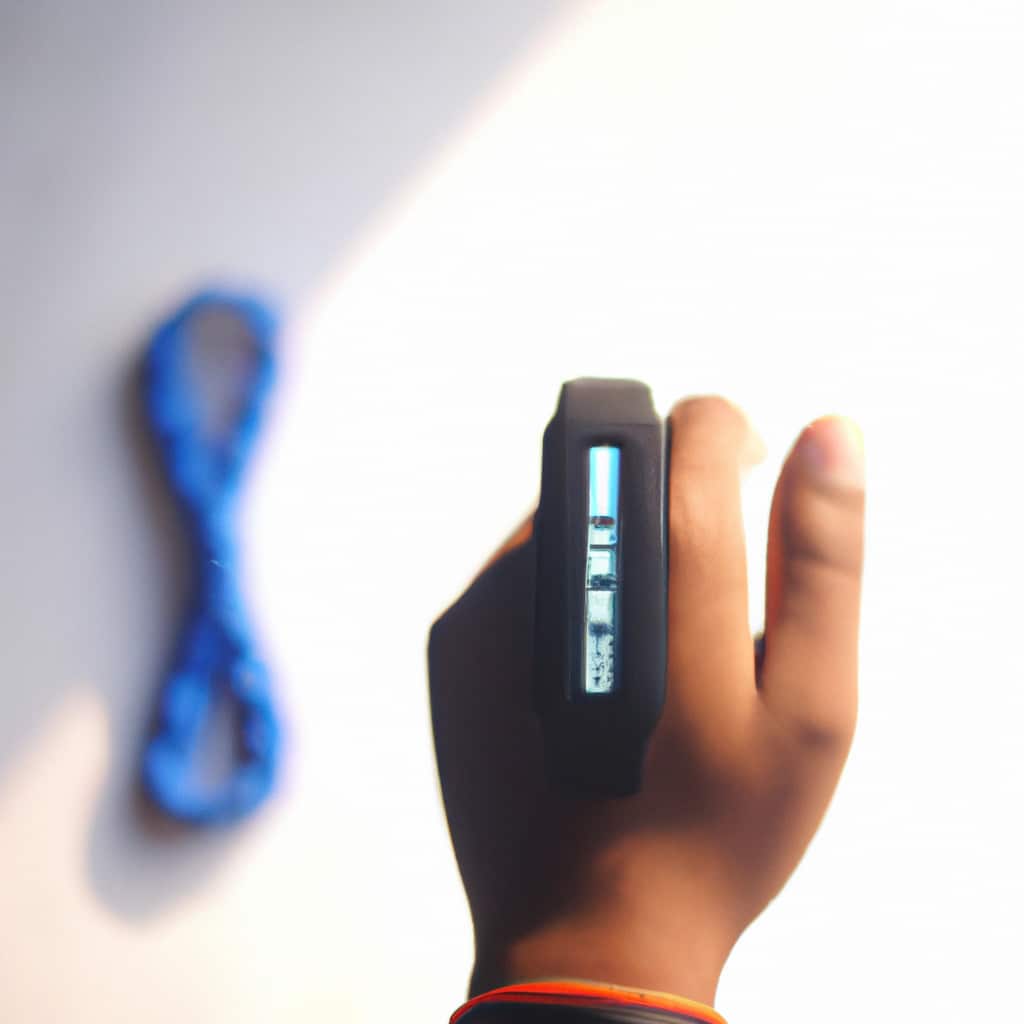
The Role of Fitness Trackers in Sleep Monitoring
Fitness trackers have revolutionized the way we monitor and track our physical activity, but their capabilities extend far beyond step counting and heart rate monitoring. These innovative devices have evolved to become powerful tools in sleep monitoring, providing valuable insights into our sleep patterns and helping us optimize our sleep quality.
One of the key features of fitness trackers is their ability to track movement during sleep. By utilizing built-in accelerometers and gyroscopes, these devices can detect and analyze our body movements throughout the night. This data is then used to determine the different sleep stages we go through, such as light sleep, deep sleep, and REM sleep.
During REM sleep, our eyes move rapidly, and our brain activity resembles that of wakefulness. Fitness trackers can detect these subtle eye movements and accurately identify the REM sleep stage. This is significant because REM sleep is associated with dreaming, memory consolidation, and emotional processing. By tracking our REM sleep, fitness trackers provide insights into the quality and duration of this important sleep stage.
In addition to movement tracking, fitness trackers also monitor heart rate variability (HRV) during sleep. HRV is the variation in time intervals between consecutive heartbeats and is a valuable indicator of our autonomic nervous system’s activity. By analyzing HRV data, fitness trackers can provide insights into our overall sleep quality and the balance between our sympathetic and parasympathetic nervous systems.
Furthermore, some fitness trackers are equipped with sensors that measure skin temperature and ambient light levels. These additional data points can offer further insights into our sleep environment and potential factors that may impact our sleep quality. For example, if the room temperature is too warm or if there is excessive light exposure, these factors can disrupt our sleep and affect the duration and quality of different sleep stages.
To make sense of the data collected during sleep, fitness trackers utilize sophisticated algorithms and machine learning techniques. These algorithms analyze the patterns and trends in our sleep data, allowing the device to generate detailed sleep reports and provide personalized recommendations for improving our sleep quality. By identifying patterns and trends in our sleep data, fitness trackers can help us understand how our habits and environment affect our sleep.
The data collected by fitness trackers can be accessed through companion mobile apps or web platforms, providing users with a convenient way to view and interpret their sleep metrics. These apps often offer visualizations of sleep stages, sleep duration, and sleep efficiency, enabling users to track their progress over time and make informed adjustments to their sleep routines.
It is important to note that while fitness trackers can provide valuable insights into our sleep patterns, they are not a substitute for professional medical advice. If you have persistent sleep issues or suspect a sleep disorder, it is always recommended to consult with a healthcare professional for a comprehensive evaluation.
In conclusion, fitness trackers have emerged as powerful tools in sleep monitoring, providing us with valuable insights into our sleep patterns and helping us optimize our sleep quality. By tracking movement, heart rate variability, and other sleep-related metrics, these devices enable us to understand our sleep patterns and make informed decisions to improve our sleep routines. With the help of fitness trackers, we can take control of our sleep health and achieve restful nights for better overall well-being.
Improving Sleep Quality with Fitness Trackers
Now that we have explored the role of fitness trackers in sleep monitoring, let’s delve into how these devices can help us improve our sleep quality. By leveraging the data collected by fitness trackers, we can make informed adjustments to our sleep routines and create an environment that promotes restful and rejuvenating sleep.
One of the key aspects of improving sleep quality is maintaining a consistent sleep schedule. Our bodies thrive on routine, and having a regular sleep-wake cycle can help regulate our internal body clock, also known as the circadian rhythm. Fitness trackers can provide insights into our sleep patterns and help us identify any inconsistencies or irregularities in our sleep schedule. Armed with this information, we can establish a consistent bedtime and wake-up time, ensuring that we get the recommended amount of sleep each night.
Creating a sleep-friendly environment is another crucial factor in optimizing sleep quality. Fitness trackers can provide insights into our sleep environment, such as ambient light levels and room temperature. By analyzing this data, we can make adjustments to create a more conducive sleep environment. For example, if the room is too bright, we can use blackout curtains or wear an eye mask to block out excess light. If the room is too warm, we can adjust the thermostat or use a fan to create a cooler sleeping environment.
Managing stress and promoting relaxation before bedtime is also essential for improving sleep quality. Fitness trackers can provide insights into our heart rate variability (HRV), which is a valuable indicator of our stress levels. By monitoring our HRV trends, we can identify periods of high stress and take proactive steps to manage it. This may include engaging in relaxation techniques such as deep breathing exercises, meditation, or listening to calming music before bed.
In addition to managing stress, tracking our caffeine and alcohol intake can significantly impact our sleep quality. Fitness trackers can help us monitor our sleep data alongside our consumption of these substances, allowing us to identify any correlations and make informed decisions about our intake. For example, if we notice that our sleep quality is compromised after consuming caffeine late in the day, we can adjust our caffeine consumption habits to ensure it doesn’t interfere with our sleep.
Furthermore, fitness trackers can assist us in establishing a bedtime routine that promotes relaxation and signals to our bodies that it’s time to wind down. By tracking our sleep data, we can identify activities or habits that may be disrupting our sleep. For example, if we notice that scrolling through our phone before bed leads to restless sleep, we can establish a screen-free wind-down routine that includes activities like reading a book, taking a warm bath, or practicing gentle stretching.
It’s important to remember that improving sleep quality is a holistic process that involves various factors, including physical, environmental, and psychological aspects. While fitness trackers can provide valuable insights, they are just one tool in our sleep improvement arsenal. It’s essential to approach sleep improvement with a comprehensive mindset and consider other lifestyle factors that may impact our sleep, such as exercise, diet, and stress management.
In conclusion, fitness trackers have the potential to revolutionize our understanding of sleep and help us optimize our sleep quality. By monitoring our sleep patterns and providing valuable insights, these devices empower us to make informed decisions and take proactive steps towards achieving restful and rejuvenating sleep. By leveraging the data collected by fitness trackers, we can establish consistent sleep schedules, create sleep-friendly environments, manage stress, and adopt bedtime routines that promote relaxation. With the help of fitness trackers, we can unlock the secrets to a good night’s sleep and wake up refreshed and ready to take on the day.
In conclusion, fitness trackers have revolutionized the way we monitor and understand our sleep. These innovative devices, equipped with advanced sensors and algorithms, provide valuable insights into our sleep patterns, duration, and quality. By tracking our movement, heart rate variability, and other sleep-related metrics, fitness trackers help us gain a deeper understanding of our sleep cycles and make informed decisions to optimize our sleep routines.
With the data collected by fitness trackers, we can establish consistent sleep schedules, create sleep-friendly environments, manage stress, and adopt bedtime routines that promote relaxation. By leveraging the power of these devices, we can unlock the secrets to a good night’s sleep and wake up refreshed and ready to take on the day.
However, it’s important to remember that fitness trackers are just one tool in our sleep improvement arsenal. While they provide valuable insights, they are not a substitute for professional medical advice. If you have persistent sleep issues or suspect a sleep disorder, it is always recommended to consult with a healthcare professional for a comprehensive evaluation.
In addition, improving sleep quality is a holistic process that involves various lifestyle factors. Exercise, diet, stress management, and creating a conducive sleep environment all play a crucial role in optimizing our sleep. By considering these factors alongside the insights provided by fitness trackers, we can truly transform our sleep and enhance our overall well-being.
So, are you ready to take control of your sleep? Are you ready to unlock the secrets of restful nights with the help of fitness trackers? With these devices, we have the power to understand and improve our sleep like never before. It’s time to embrace the possibilities and embark on a journey to better sleep. Your body and mind will thank you for it.
Are you ready to take control of your sleep? Are you ready to unlock the secrets of restful nights with the help of fitness trackers?
